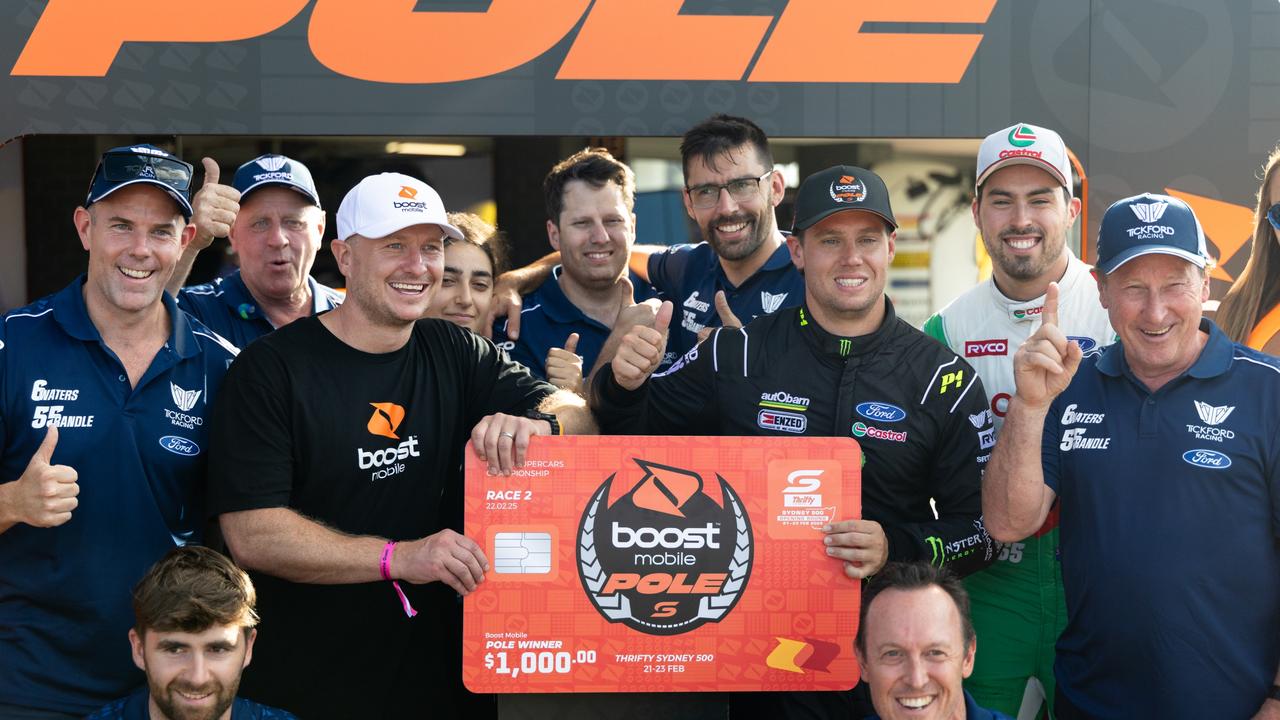Mack Horton: ‘It doesn’t hurt me’
HIS rivalry with China’s star athlete Sun Yang has earned him the wrath of thousands. But the Aussie Olympian is not fazed in the least — his sights are firmly on the Commonwealth Games.
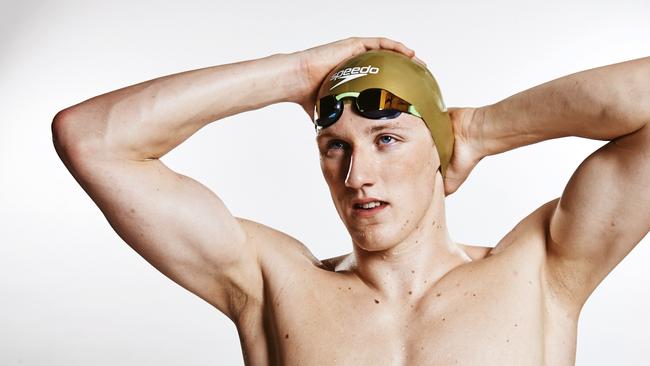
Sport
Don't miss out on the headlines from Sport. Followed categories will be added to My News.
TEN-year old Mack Horton was frightened of the water: he’d spent almost the entire school term refusing to put his head under it during swimming lessons. But at the very last class of the term, with three minutes to go, determination kicked in. He whispered to himself: “OK, I’m going to do it.”
With a deep breath and a feeling that mixed trepidation and courage, he dipped his whole body under the water. It was love at first splash. “They couldn’t get me out after that,” Horton tells Stellar, with a laugh. “That’s how good it was... I liked the freedom of swimming, the zero gravity; I just felt free.”
It didn’t take long for Horton’s infatuation to turn into a long-term love affair, as he discovered the thrill of racing and the sensation of speed swimming. “When you’re swimming really fast it feels like flying,” he says. “The pain goes away and you just feel good. It’s as close to flying as I reckon you can come.”
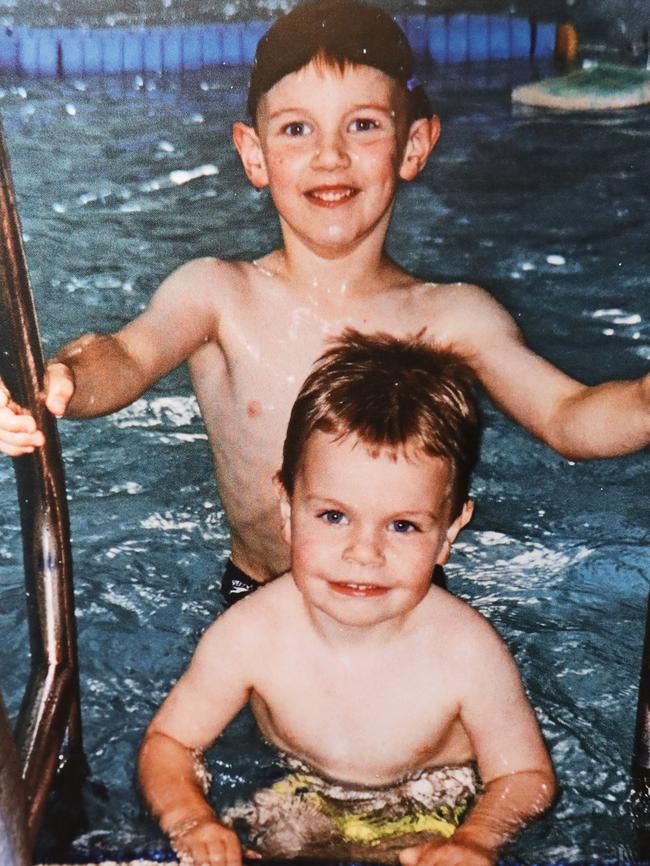

He flew to victory just 10 years after conquering his fear of water, becoming a 400-metres freestyle Olympic champion in Rio de Janeiro at the age of 20. Now, at 21, his focus is the Commonwealth Games. At the trials on the Gold Coast at the beginning of the month, he qualified in the 400-metres, 200-metres, 4 x 200-metres relay and 1500-metres. For the upcoming Games, his goal is simple: “Swim fast.”
Focus on the time, not the medals. It’s a philosophy he first developed as a kid, a methodology hatched by his dad, Andrew, in the car ride from his morning swimming training to school. Horton would eat his breakfast while his father gave him a steady stream of advice. “Dad had me locked down for half an hour every morning for a chat,” Horton laughs. “Every day was a different life lesson. He just drilled into me that you need to have goals and processes. The easiest way to get where you want to be is to copy someone else and do it better.”
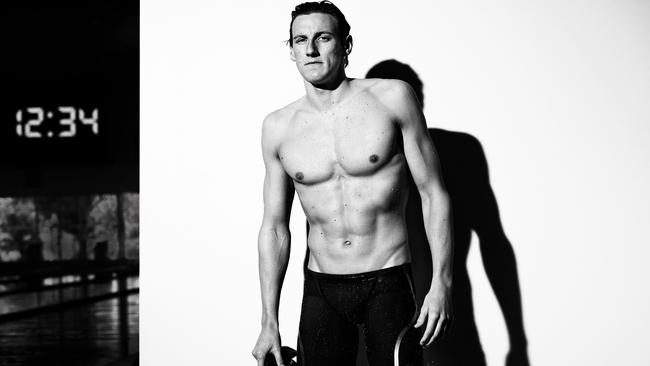
On his father’s advice, Horton printed a sheet of paper detailing every age-group record for the 1500-metres: from the 13-year-old to the 18-year-old records for the event. “I printed it out and stuck it up above my bed,” Horton says. He’d fall asleep looking at that sheet of records. “I managed to knock most of them all off as I went through each year. I knocked Grant Hackett’s time off but I never got Kieren Perkins’s record. My goal is still to swim really fast, rather than medals. The logic is if I’m going to swim these times then the medals will come as well.”
At the Rio Olympics in 2016, Horton remembers standing on the pool deck just before the start of the 400-metres freestyle. He knew he was going to win it. (“You have to have that kind of level of self-belief.”) In the lane beside him was his arch rival, China’s Sun Yang, who had just tried to disrupt his preparation in the warm-up pool. Horton had ignored him and publicly dismissed him as a drug cheat for whom he had no time or respect (Yang served a secret three-month suspension for testing positive to a banned stimulant in 2014). And then the final blow: Horton executed a tactically excellent race and won Olympic gold. It was a glorious victory.
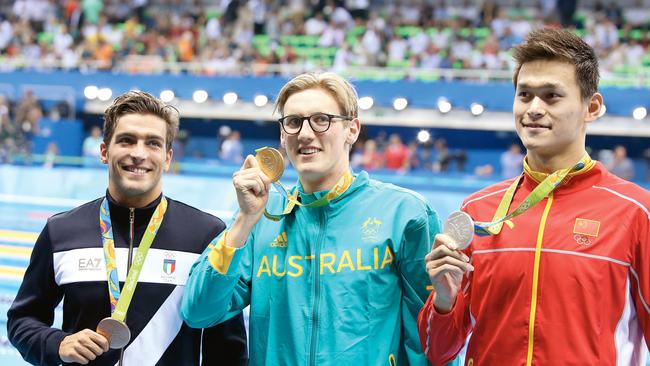
But since bringing home the medal, Horton says “not so much” has changed in his life. He still lives in the leafy Melbourne suburb of Glen Iris with his parents. “I can’t afford to move out,” he says. “I live in Melbourne!” He sleeps in his childhood bedroom with that piece of paper still Blu-Tacked to the ceiling above him. “I am scared it could be bad luck to take it down,” he grins. “Everything at home is the same. Everything at training is the same. The people who I know and care about are the same to me. It’s just the outside world I guess… you get recognised a little bit more, but that’s it really.”
The Olympic gold medal isn’t even on display in the pool room: Horton keeps his medal in its timber box, inside a cardboard box.
In the mid to late 2000s, athletes like Grant Hackett, Stephanie Rice and Ian Thorpe turned their medals into millions — back then, the sponsorship market was hot for successful swimmers. But times have changed. Since his Olympic success in Rio, Horton has been gifted a Vespa, RACV has been offering him holidays and corporate speaking engagements, and Speedo is still providing him with swimwear (as they did before the Olympics). Then there’s the day-to-day funding from the Georgina Hope Foundation and money for swimmers provided by mining magnate Gina Rinehart. It all helps, but it’s hardly millions. “You do it because you love it. And you end up with people who only do it because they love it. I think the public’s perception is that if you are an Australian Dolphin or if you medal at the Olympics you are going to be set for life, that there’s going to be cash money every day. For perspective, the AOC prize money for a gold medal is, drum roll, $20,000. That’s like $2000 a year for training for 10 years.”
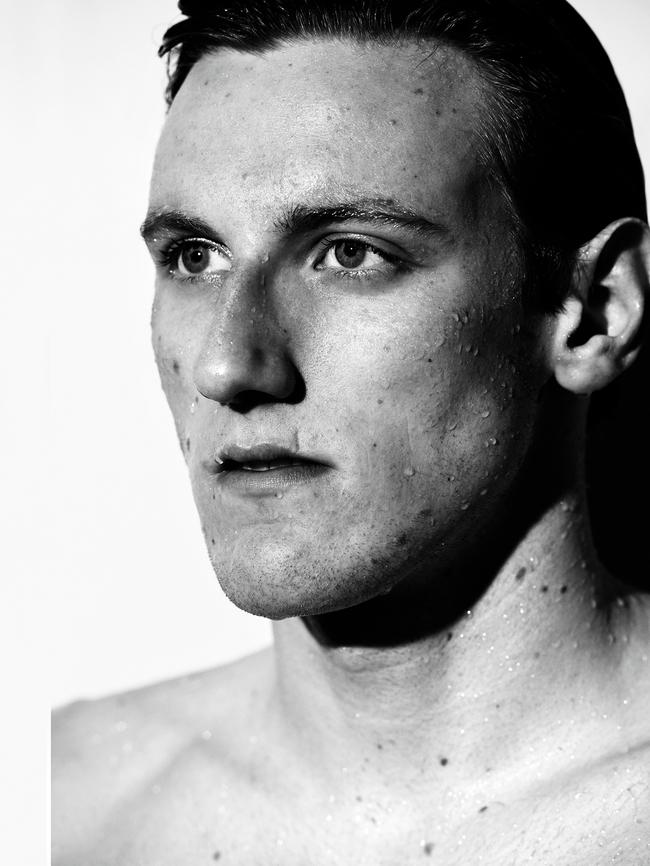
The one thing that has changed since the Olympics — and Horton’s tongue-lashing of China’s darling-with-a-doping-past, Yang — has been the trolls. Hundreds of thousands of them, who still pester and harass Horton on a daily basis via social media. It didn’t stop him from speaking out again ahead of last year’s FINA World Championships in Budapest, though. When asked of his famous rivalry with Yang in the lead-up to their 400-metres race, Horton said, “I think it is a rivalry between clean athletes and athletes who have tested positive.” Yang eventually won that world championship title and Horton claimed silver.
He cops constant criticism. “It’s pretty crazy. Whenever I post a photo they will comment,” he says. “They post ‘poo’ and ‘snake’ emojis. Chinese writing... I’m not going to go and translate it!” Yang’s supporters troll photos of him and his girlfriend, Ella Walter, at the races, too. “Please apologise to Sun Yang” is a common refrain. But Horton, who by his own definition is “pretty laid-back”, says he is not fazed by the comments. “It doesn’t hurt me. When it happened, I had 570,000 comments on a photo that were just hate. It is such a big number that you can’t relate to it. If it was 15 comments it would probably hurt more than 570,000. It is just not real.”
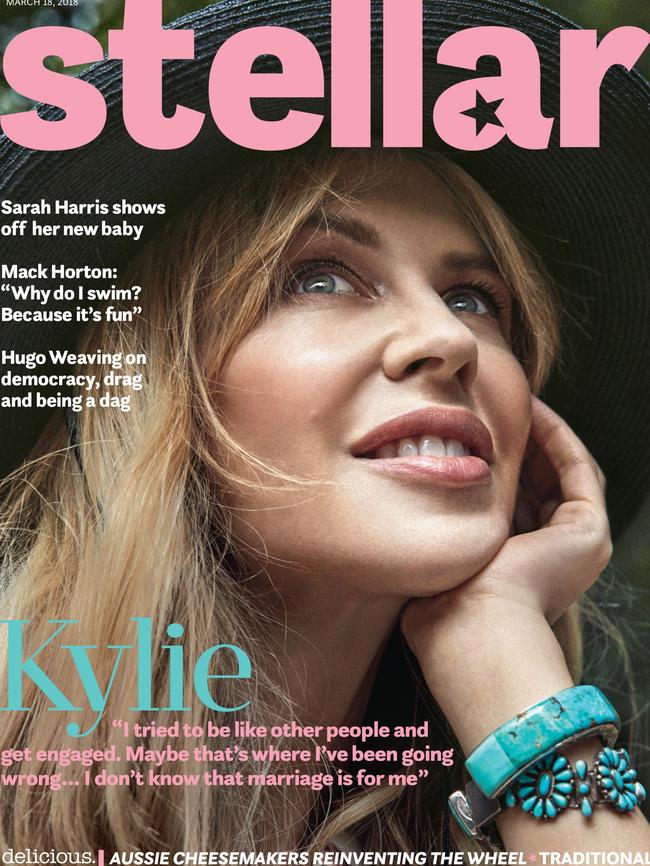
Horton clearly sees the bigger picture. While some athletes are obsessed by their sport, there’s plenty going on outside of the pool for this swimmer. He is “slowly” studying commerce at La Trobe University. He likes to “geek out” about sailing with Swimming Australia president and America’s Cup champion John Bertrand — he’d like to do some kind of extreme sailing event one day, such as the Sydney to Hobart. There are also dreams of doing an Ironman event, a marathon, or some other challenge that would push him to his limits. He says his girlfriend Ella is constantly rolling her eyes at the number of brainwaves he has about competing in some kind of extreme sport. For the moment, however, he is sticking with a much tamer hobby: photography. Horton has just bought himself a fancy new camera and admires the work of iconic Australian photographer Max Dupain.
But he won’t be giving up his first love anytime soon. “I swim because it’s fun. I try and keep it simple. When pressure is high or I’m nervous I think, ‘Why am I doing this?’ – and it’s because it’s fun to race. It’s fun being as good as I can be.” Quite a turnaround for a kid who once feared putting his head underwater.
Originally published as Mack Horton: ‘It doesn’t hurt me’


